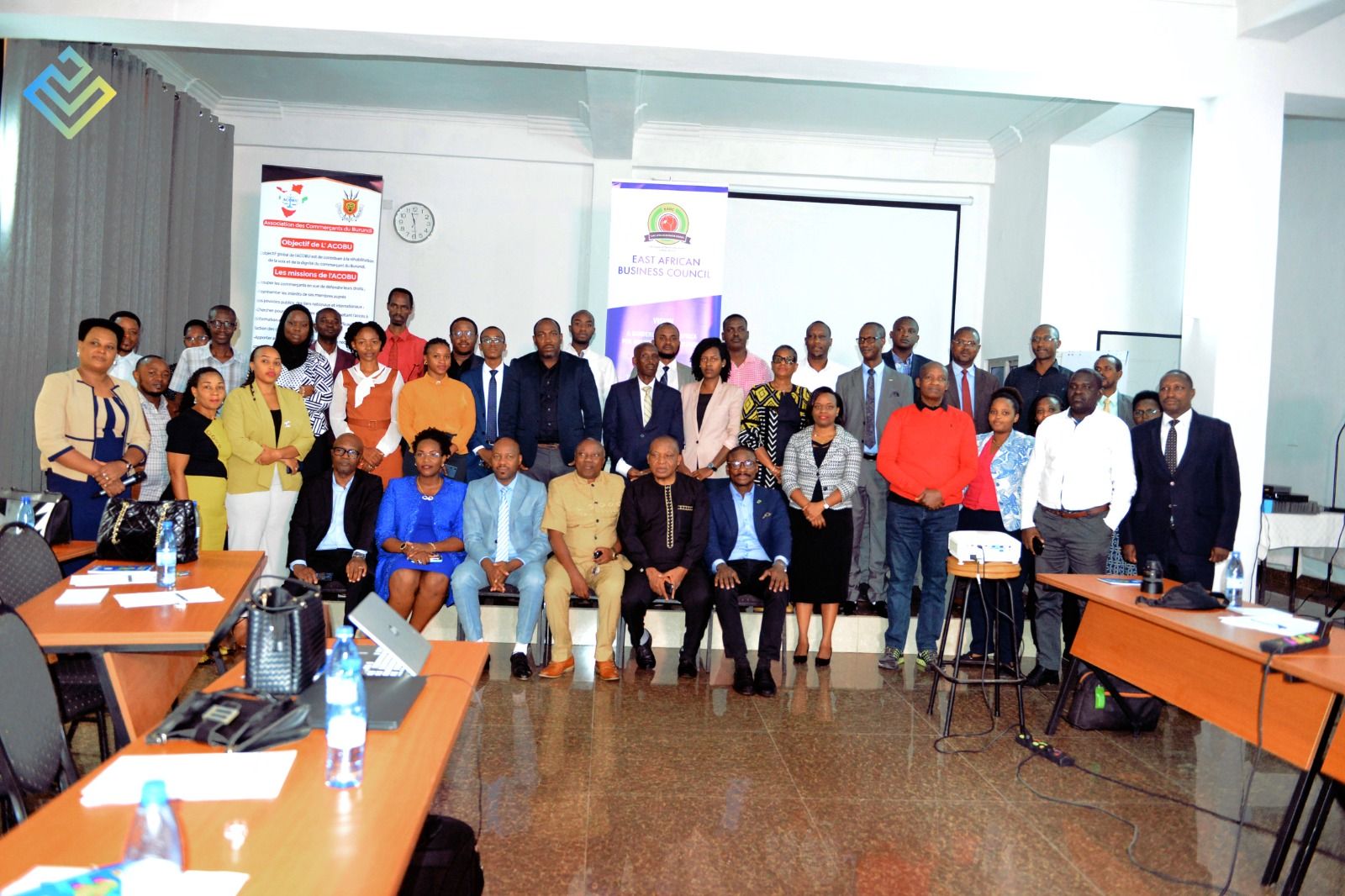On 15 November, the East African Business Council (EABC), in partnership with GIZ via the "Support to East African Integration" (SEAMPEC II) Programme, enriched the knowledge of 50 members of the business community engaged in value addition in priority sectors such as agri-business, manufacturing, leather, pharmaceuticals, transport & logistics and fruits & vegetables concerning the African Continental Free Trade Area (AfCFTA) Trade in Goods Protocol.
The two-day workshop aimed to enhance Burundi’s private sector participation in the EAC and African integration to seize trade and investment opportunities under the AfCFTA agreement.
During the workshop's official opening, Mr. John Claude Kanene, Assistant to the Minister of Trade, Transport, and Tourism, Republic of Burundi, highlighted the workshop's timely occurrence amidst increased momentum among African countries in implementing the AfCFTA through commercially viable preferential trading. He stated, "Currently, majority of AfCFTA Member States have exchanged tariff offers, facilitating preferential trading."
Mr. Kanene emphasised that the workshop will encourage Burundi businesses to commence trading under AfCFTA arrangements, following the lead of their counterparts in Rwanda, Kenya, and Tanzania, who have initiated trading under the Guided Trade Initiative (GTI). "Given the collective tariff offer to AfCFTA by EAC Partner States gazetted in May 2023, Burundi is now allowed to start trading with other AfCFTA member states who have exchanged their tariff offers," he explained.
Hon. Jean Samandari, Secretary General of the Consumers Association of Burundi (ACOBU), representing EABC Vice Chairperson-Burundi Chapter, highlighted, "EAC goods exports to Africa increased by approximately 10.76%, reaching USD 8.07 billion in 2021 and USD 8.94 billion in 2022, while the training aims to further boost Burundi's exports to Africa, which stood at approximately 68.11 million in 2022."
Statistics show that total Intra-EAC Trade grew by approximately 11.2% to USD 10.9 billion in 2022 from USD 9.81 billion in 2021. However, the share of intra-EAC trade as part of EAC's total trade globally remained stagnant at approximately 15% in both 2022 and 2021.
Burundi’s exports to the EAC rose by approximately 8.47%, from US$51.07 million in 2021 to US$55.39 million in 2022. Most exports were directed to the DR Congo, totaling approximately US$38.73 million, followed by Tanzania at approximately US$9.92 million. Burundi’s domestic export earnings from the world surged by approximately 26.96% to US$195.50 million in 2022 from US$153.99 million in 2021.
The training encompassed the AfCFTA Trade in Goods Protocol and its annexes (Rules of Origin, Tariff Concession, and Non-Tariff Barriers) and their implications for businesses in the EAC bloc. Mr Adrian Njau, Trade & Policy Advisor with EABC, highlighted that the AfCFTA expands the preferential market for Burundian products beyond the EAC and COMESA markets, enabling Burundi to trade preferentially with other African countries under AfCFTA trade arrangements, such as members of ECOWAS, SACU, and North African countries.
Mr. Denis Nshimirimana, Secretary General of Burundi Federal Chamber of Commerce and Industry, emphasised that Burundi, being situated at the centre of the African continent, should leverage its geographical location and the potential of agricultural products to benefit from the opportunities presented by AfCFTA as a liberalised single African market.
He thanked EABC for sensitising the private sector across EAC on the challenges, implications, and opportunities associated with the implementation of AfCFTA trading arrangements for businesses and the region in general.
The full implementation of the AfCFTA is poised to create a liberalised single African market for goods and services driven by free movement of people and capital across the continent. EAC Partner States have vast potential to export agricultural products, minerals, and value-added manufacturing products to African countries under AfCFTA.
Background
SEAMPEC II works closely with the EAC Department of Investment Promotion and Private Sector Development and EABC to organise a series of capacity building trainings workshops in the EAC Partner States to equip them with knowledge and expertise for the implementation of the AfCFTA Investment Protocol.
Find more information on SEAMPEC II here.
